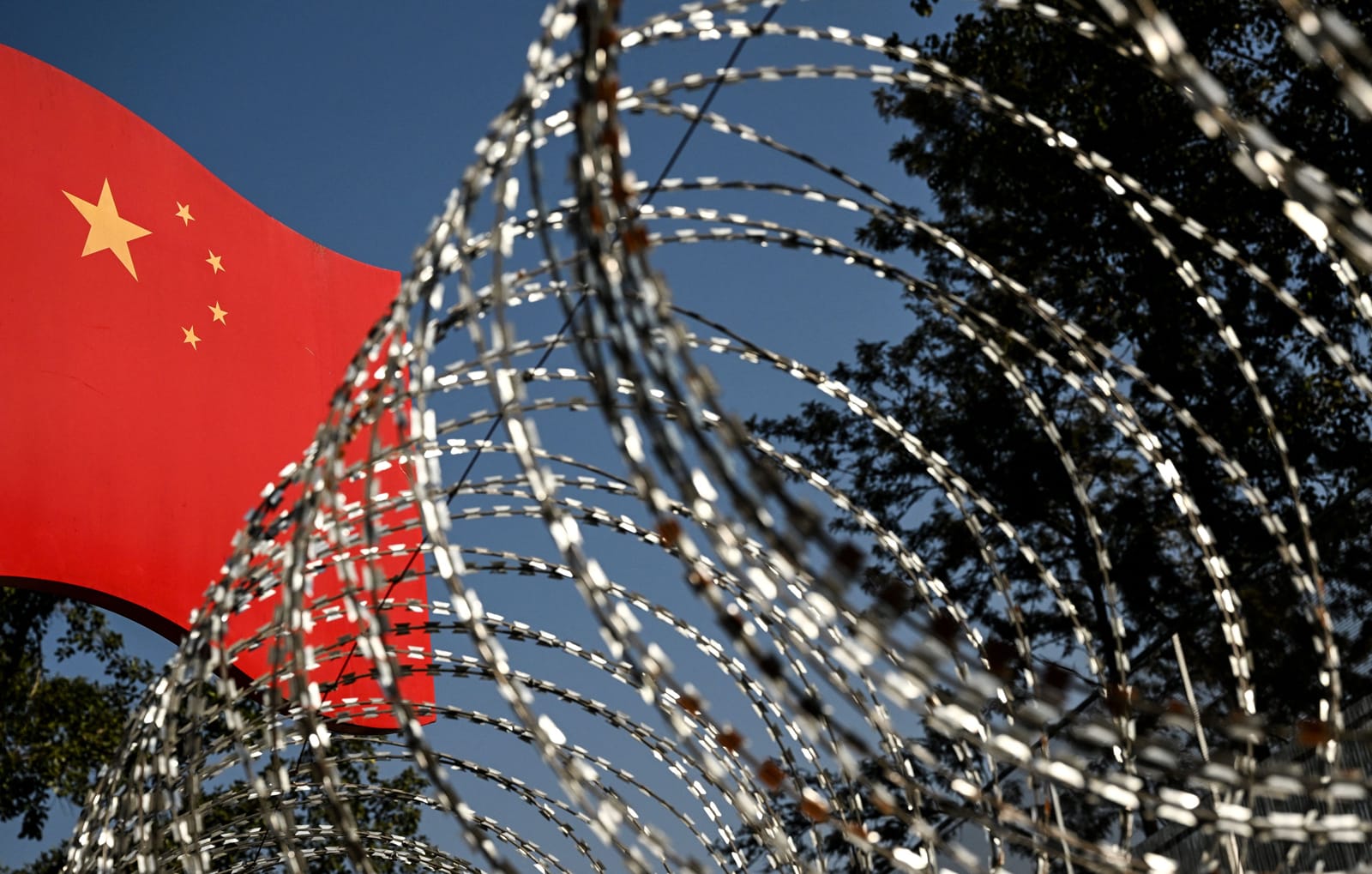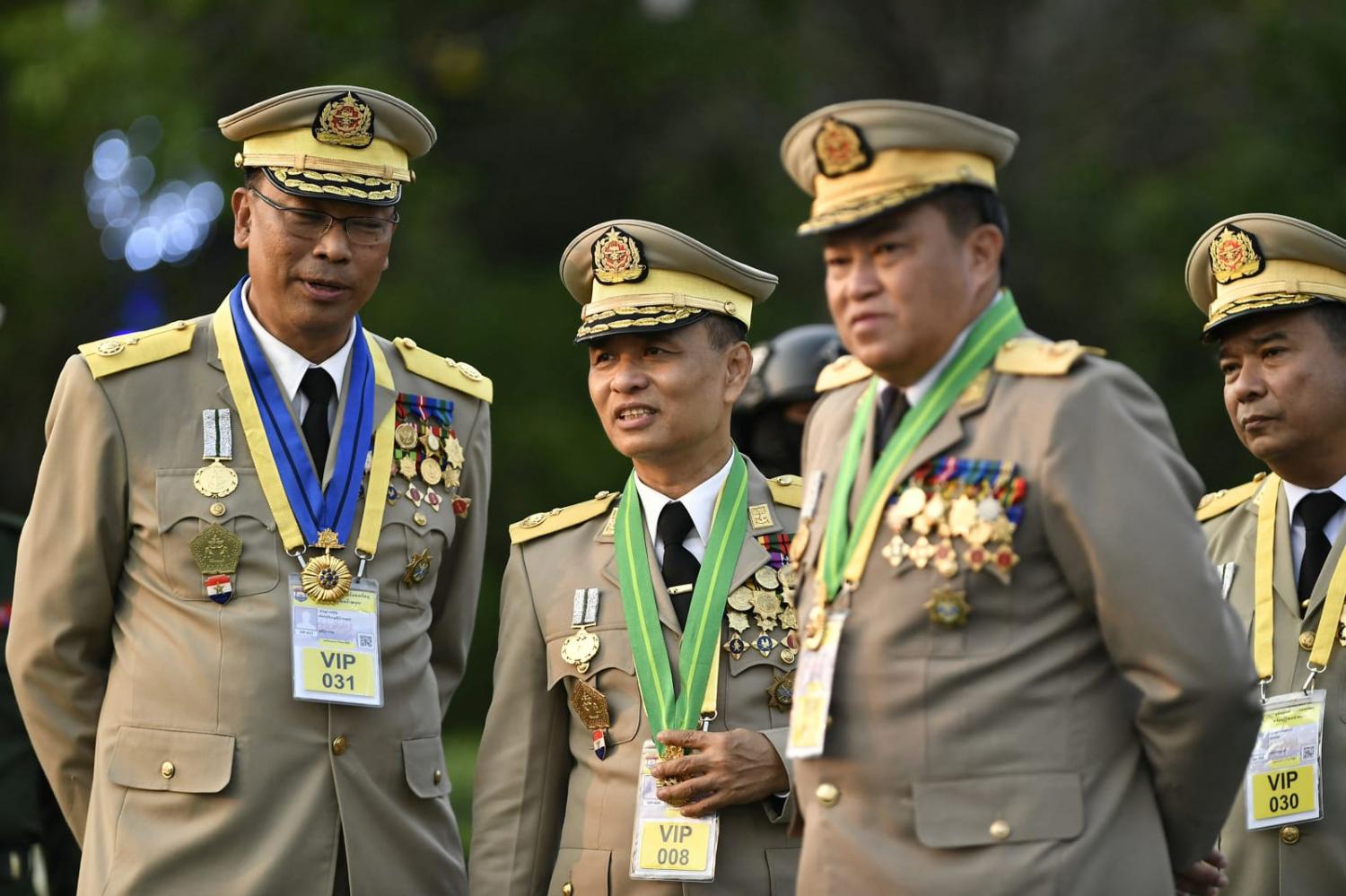The extent to which China seeks to actively export authoritarianism has long divided commentators.
There are indeed genuine examples of Chinese Communist Party (CCP) institutions training cadres from various African parties in the concept of “party supremacy”. China has also actively sought to undermine liberal democratic principles in global institutions.
President Joe Biden’s depiction of the 21st century as a struggle between democracy and autocracy supports the argument that strong ideological motivations shape China’s foreign policy.
But a rich deposit of evidence from Myanmar does at least problematise the notion that Beijing maintains an insuperable ideological preference for autocratic leaders. If there is an innate bias towards fellow autocrats – in this case the Tatmadaw, Myanmar’s military – it certainly plays second fiddle to more elemental interests.
China’s overriding preoccupations in Myanmar are the country’s stability, especially the porous 2,000-kilometre border regions abutting Yunnan province, and the advancement of megaprojects associated with the Belt and Road Initiative (BRI).
As Sean Turnell, onetime economic advisor to the imprisoned former State Counsellor Aung San Suu Kyi, explains in his new Lowy Institute Paper Best Laid Plans, these projects often presented a raw deal for Myanmar. Turnell’s book is a captivating account of his role in Myanmar’s ill-fated reform era prior to the 2021 coup.
The Kyaukphyu megaproject, encompassing a deep-sea port and a series of railways and oil pipelines, is an example of the risk. Its initial US$10 billion price-tag – later re-negotiated to US$1.2 billion on Turnell’s advice – was “much too big” for Myanmar’s own purposes.
China’s frustration with the Tatmadaw has localised causes.
For China, Kyaukphyu’s strategic benefits are incontrovertible. Kyaukphyu is crucial for China’s efforts to develop energy supply routes circumventing the Straits of Malacca, which China would struggle to control in a conflict.
Aung San Suu Kyi, Turnell notes, bridled at any notion that she was “pro-Chinese”. Regardless, with its prioritisation of economic development and a degree of technocratic competence, her National League for Democracy (NLD) government presented a much more credible partner for China than the Tatmadaw, which routinely pursued autarky.
The Tatmadaw has also traditionally been innately wary of China because of its historic role in supporting the Communist Party of Burma, the antecedent of some of the most powerful ethnic-armed organisations (EAOs) in Myanmar. Avoiding excess reliance on China was, ironically in light of recent events, a key impetus for the Tatmadaw’s reforms in 2011.
Increasingly isolated, the Tatmadaw, currently led by Commander-in-Chief Min Aung Hlaing, is now attempting to advance Kyaukphyu and other key BRI projects.
But, as Turnell argues, they are manifestly failing to provide the “necessary security”. Although the situation on the ground is turbid, large pockets of Myanmar outside the major cities are controlled or contested by EAOs, or ragtag NLD-aligned rebel groups.
So, is China rushing to the aid of its beleaguered authoritarian ally?
In truth, China has always adopted a hedging approach towards the Min Aung Hlaing regime. Recent events suggest that the dial has appreciably shifted towards outright pressure.
Despite its blithe description of the 2021 coup as a “major cabinet reshuffle” and military sales to the Tatmadaw totalling over US$250 million, China took the unusual step of maintaining contacts with the ousted NLD. Beijing also tacitly cooperated with the United States to allow Myanmar’s NLD-appointed ambassador to the United Nations to continue in his role. China abstaining allowed the UN Security Council to pass its first resolution on Myanmar in 70 years.
Most instructively, China has declined to officially recognise Min Aung Hlaing as head of state, nor has it extended an invitation for the general to visit Beijing.

A confluence of events has convinced Beijing to more actively pressure the Tatmadaw.
China’s influence over EAOs varies enormously. They are certainly no Chinese ciphers and have conducted military operations which China has opposed. But generally, EAOs have been reluctant to undertake operations against the Tatmadaw in border areas. China thus appears to have tacitly accepted major EAO operations against the Tatmadaw in October 2023 and late July in the northern Shan state.
China’s frustration with the Tatmadaw has localised causes, including the presence of cyber-scam sweatshops which have victimised thousands of Chinese citizens. Beijing now figures that EAOs are better guarantors of border stability than the Tatmadaw.
The latest major EAO operation did not take place in isolation from the diplomatic track. Before the major rebel offensive, Beijing hosted former Tatmadaw reformist leader Thein Sein. During this visit, China reportedly made the extraordinary request of Thein Sein to help convince Min Aung Hlaing to step down and form an interim government to hold elections.
Foreign Minister Wang Yi also visited Naypyidaw in mid-August, to make a somewhat amusing offer of “technical assistance” for the holding of elections. Such elections – which the Tatmadaw has promised to hold without specifying a date – are unlikely to be free or fair. China nevertheless views a more inclusive approach to governance as more conducive to Myanmar’s stability.
Beijing has not undertaken a Damascene conversion to the cause of liberal democracy. Nor does it clearly have Myanmar’s best interests at heart. China’s support for elections means that its position has broadly converged with the international consensus – a dynamic UN Special Envoy Julie Bishop appears to be capitalising on.
China’s call for elections is about hard-nosed realism. China doesn’t much care what your political system is, so long as you are receptive to its interests.

